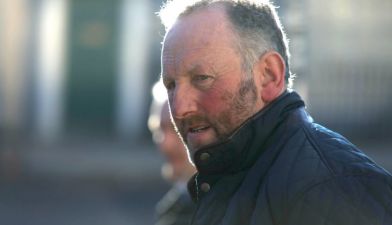A jury deliberating in the trial of a Polish man charged with murdering a 24-year-old Mayo man asked the trial judge to clarify certain issues in the case concerning self-defence and intent.
The jury at the Central Criminal Court in the case of Matusz Batiuk (33) asked Ms Justice Mary Ellen Ring if the issue of self-defence and the issue of lack of intent to commit murder or cause serious harm were mutually exclusive.
Mr Batiuk, formerly of Carrabeg Estate, Swinford in Co Mayo, has pleaded not guilty to the murder of Michael McDonagh at the housing estate on November 16th, 2020, and the jury previously heard that the accused said he believed his life was in danger when he stabbed Mr McDonagh.
In her charge to the jury before they began their deliberations on Wednesday, the judge said the jury could either find the accused guilty of murder; not guilty of murder on the grounds of self-defence; guilty of manslaughter by reason of self-defence but the use of excessive force; guilty of manslaughter if they considered he did not intend to kill Mr McDonagh, but that he assaulted him in a manner that led to his death; or guilty of manslaughter on the grounds of diminished responsibility.
Responding to the question asked by the jury today, Ms Justice Ring said that “self-defence is a significant issue in this case”.
She said that if the jury had reached the position where they are not satisfied by the evidence that there was an intention to kill or cause serious harm, then the appropriate verdict would be one of manslaughter.
Ms Justice Ring went on to explain the legal definition of assault. She said that assault is when a person without lawful excuse intentionally or recklessly applies force on the body of another without the consent of the other person.
She said that concerning Mr Batiuk, the jury had to “look at him as a person”.
“It’s clear he had a long-standing history of mental health difficulties,” said the judge. “You are looking at the man who existed on that date, which would include that he had a mental illness. You can’t separate that mental illness as that is the man, that’s who he is.”
She said that if the jury had reached a decision regarding the issue of self-defence and the issue of lack of intent to commit murder or cause serious harm, then they did not have to consider the issue of diminished responsibility.
The judge said that the issue of diminished responsibility only arises if the jury are still looking at a verdict relating to murder and not manslaughter.
She told the jury to come back if they had any further questions.
The prosecution in the case, led by Desmond Dockery SC, say that the accused intended to commit murder when he reached for the knife and "plunged" it into Mr McDonagh’s stomach.
The defence, led by Vincent Heneghan SC, say that Mr Batiuk felt threatened by Mr McDonagh and feared for his life, and he inflicted the single stab wound in self-defence.
The jury heard that the accused told gardaí “I did what I did to defend myself” and said he never meant to kill Mr McDonagh.
He said he saw a knife and picked it up as Mr McDonagh kept coming forward towards him, and he said he was sure Mr McDonagh was going to kill him.

He said he told him to stop and then “I stabbed him in the stomach to keep him from killing me”.
A pathologist in the trial, Dr Kathleen Han Suyin, told the jury that there was no way to determine the force used in the single stab wound, saying it was “unfortunate” that the knife severed a vital artery in Mr McDonagh causing death.
The jury also heard evidence from two forensic psychiatrists, who said that Mr Batiuk has paranoid schizophrenia and suffers from persecutory delusions.
Dr Jamie Walsh and Dr Stephen Monks both said it was appropriate for the jury to consider whether Mr Batiuk’s responsibility was diminished at the time of the stabbing.







